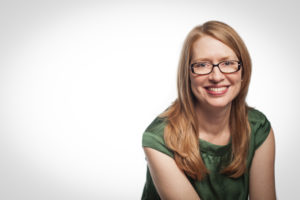 The results of a recent AMM member needs assessment survey revealed an interest in training, best practices, and expert advice on fundraising. This summer, Jenny Burch from Knight Ridge Consulting will lead a workshop focused on developing a fundraising program that supports strategic goals titled Development 101: The Museum Leader’s Guide to Practical Fundraising. We decided to check in with Jenny to learn more about the industry and the contents of her workshop.
The results of a recent AMM member needs assessment survey revealed an interest in training, best practices, and expert advice on fundraising. This summer, Jenny Burch from Knight Ridge Consulting will lead a workshop focused on developing a fundraising program that supports strategic goals titled Development 101: The Museum Leader’s Guide to Practical Fundraising. We decided to check in with Jenny to learn more about the industry and the contents of her workshop.
Your career in the museum field didn’t start in development. Tell us a little bit about your path and how you found yourself in this discipline, one in which you’ve been very successful.
My career in the museum field began in Visitor Services, where I stayed for 10 years, and then I transitioned to Membership. But I knew that if I wanted to become an Executive Director or CEO, I would have to learn fundraising. I was lucky enough to be at an institution that would let me bridge from Membership to Development without a lot of risk; I learned on the job and had several mentors. I progressed to Chief Development Officer, where I led a $57 million comprehensive campaign that would create a new 7.5-acre outdoor experience and many other major projects.
You have worked with a variety of non-profits. What have you found to be different for museums, in regard to fundraising?
Giving to arts and culture institutions represents just 5-percent of all charitable gifts in the United States, so that suggests museums have to work harder to become someone’s funding priority. But while that may be a sobering statistic, museums also have a great asset to leverage – their visitors – who are most likely to become their members and donors. And museums are inherently experiential; something many nonprofits are striving to create for their donors because it’s not always built-in, so to speak.
Are there particular trends in fundraising that museums should be aware of?
Many people ask me how the new tax laws will affect giving, but no one knows for sure. The number consistently quoted is a projected $13 billion annual decline in philanthropic giving, with only the wealthiest individuals continuing to have an incentive for philanthropy tied to tax breaks. So, museums should think carefully about their current donor base – is it mostly middle-income donors who are predicted to decline in giving – or do you have a robust major gift program that may not change much because of the tax law?
Putting tax law predictions aside, all my Development friends are reading The Givers: Wealth, Power, and Philanthropy in a New Gilded Age by David Callahan. I think Big Philanthropy will affect museums, as will funders’ shifts to investing in systems-level change, so it’s a good read.
Some staff wear a lot of hats in their museum role. How do you make time for fundraising, if it’s just one part of your job?
Prioritize, prioritize, prioritize. First, I would look at how many hours per week you can devote to fundraising, even if it’s just a few hours. Then stick to it – and spend most of your allotted time on relational fundraising v. transactional fundraising. For example, making time to send an outreach email to a donor or prospect inviting them to tour a new exhibition with you is relational. Fundraising events are transactional.
We are excited about the workshop you’re presenting at the conference this summer – Development 101. What are the top three things attendees will walk away with, in your opinion?
First, we’ll talk about trends, so attendees should feel like they know how these trends may affect their fundraising programs. Second, attendees will understand how relational fundraising can transform their fundraising program. Third, we’ll be developing an action plan that attendees can take back to their museums after the conference.
But all of this connects back to your museum’s mission, and how you’ll engage others in the incredible objects, stories, and experiences your museum provides to its community. Inviting someone to support your mission is one of the most important things you can do to ensure your museum thrives not only today, but also for years to come.
Thank you, Jenny! We look forward to learning more during your workshop on July 18th, 9:00am-12:00pm at the new American Writers Museum!